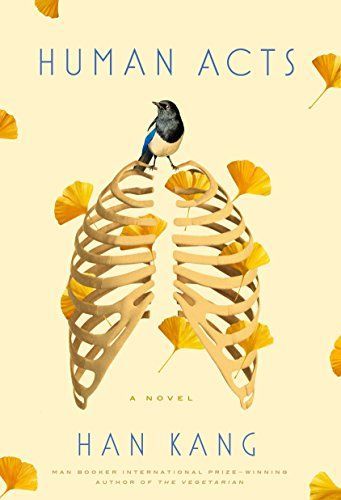
Human Acts
Gwangju, South Korea, 1980. In the wake of a viciously suppressed student uprising, a boy searches for his friend's corpse, a consciousness searches for its abandoned body, and a brutalised country searches for a voice. In a sequence of interconnected chapters the victims and the bereaved encounter censorship, denial, forgiveness and the echoing agony of the original trauma. Human Acts is a universal book, utterly modern and profoundly timeless. Already a controversial bestseller and award-winning book in Korea, it confirms Han Kang as a writer of immense importance.
Reviews
Jazmín Mejía@jaz19
Milo@mossreads
shain@shain
nina @ninaisreading
Mario Menti @mario
el.@mashamellow
adah@clvdsk
deniz@dearsapling
malaa@lovemalaa
Brandon@books_with_brandon
sani@luvterature
diya@diyankilaco
Trisa P@trisaprmt
mori@mxrii
kemi@loveloser
p.@softrosemint
brie 🦪@riseingleo
Naomi P@bloowind
Lauren B@itsmelauren
Ghita B@ghitab
Alexia Cambaling@alexiacambaling
Naveen Sheik@navsheik
Isabella Leonard@bleonard1202
Michelle Warner@mawarner94
Highlights
Fasiha🌺🐧@faszari98
Fasiha🌺🐧@faszari98
Fasiha🌺🐧@faszari98
Claire Jorgensen@clairejorgie
Page 194
Claire Jorgensen@clairejorgie
Page 210
adah@clvdsk
adah@clvdsk
soiled plants@soiled_plants
Page 51
🎠@gchord
🎠@gchord
🎠@gchord
🎠@gchord
🎠@gchord
🎠@gchord
🎠@gchord
Grace McCarter@gracemccarter
Page 61
Grace McCarter@gracemccarter
Page 25
mori@mxrii
Page 158
mori@mxrii
Page 61
kemi@loveloser
Page 213
kemi@loveloser
Page 122